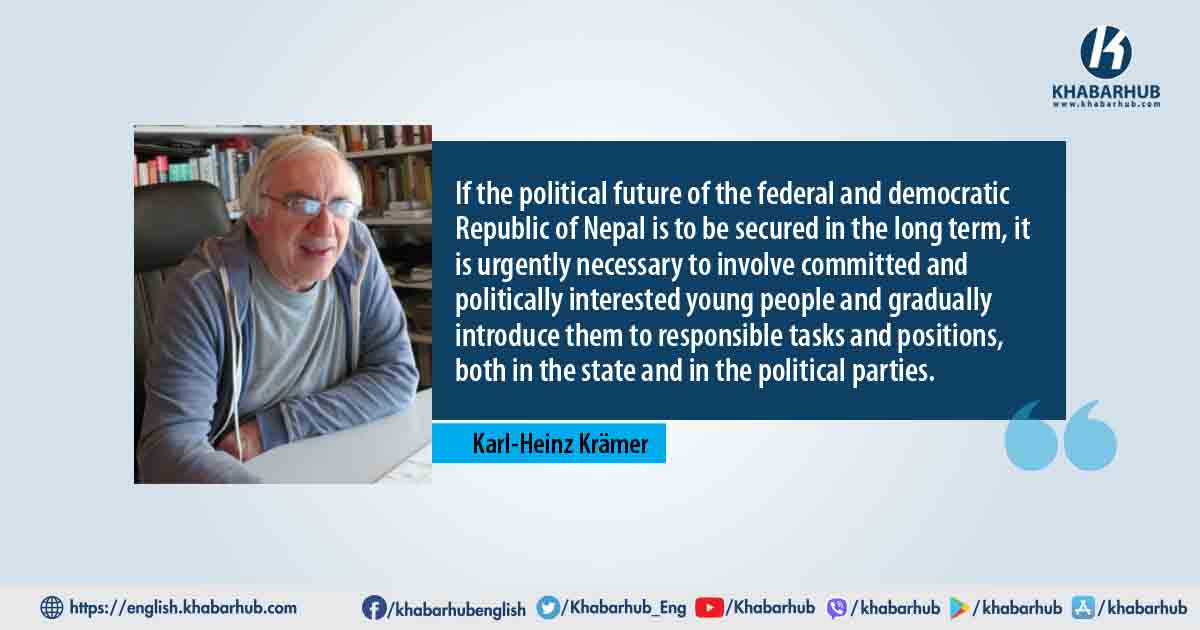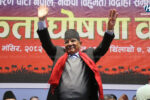At least 50 percent of Nepal’s population is 25 years old or younger. In the political system, however, which was anchored in the new constitution in 2015, their political participation is largely considered undesirable.
It is limited to the right to vote, but only from the age of 18. This means that almost 40 percent of the population is likely to be excluded.
Yet in Western countries with a much longer democratic tradition, it has long been recognized that young people today are perhaps more mature than in the past and that they want to play an active role in politics.
After all, today’s young people will soon be taking over the leadership of the country from the older generation.
As a result, more and more Western democratic countries have been considering lowering the voting age to 16, at least for local or regional elections, and recently also for elections to the European Parliament, for example.
In so-called youth organizations, you occasionally find people who are even older and are still classified as youth. In Nepal, only around 25 percent of the population is older than 40, who are then presumably really considered adults.
The situation is even worse in Nepal regarding the right to stand for election. Only in local elections are young, politically active people aged 21 and over allowed to stand as candidates, which still excludes 40 percent of the population.
Here too, 18 years is the minimum standard in Western democracies. For elections at the national level and in the provinces, candidates under the age of 25 are undesirable.
The situation is even worse when it comes to the head of state, where a minimum age of 45 is stipulated.
Applied to many Western democracies, this would mean that many heads of state or heads of government in recent decades would never have been able to take office.
One gets the impression that this deliberate marginalization of young people in Nepal was the intention of the old masters who ultimately wrote the constitution in 2015.
The Constituent Assembly was only allowed to approve what these gentlemen had previously agreed upon in their circle.
All of this had been written quite differently in the Interim Constitution. But that’s another topic.
In this way, they were able to ensure that the rule of the aging generation would continue in the long term, no matter how incompetent it may have proved to be.
The perverse definition of what is meant by youth also fits this scheme.
If the political future of the federal and democratic Republic of Nepal is to be secured in the long term, it is urgently necessary to involve committed and politically interested young people and gradually introduce them to responsible tasks and positions, both in the state and in the political parties.
The United Nations defines young people between the ages of 15 and 24 as youth. Anything older is considered an adult.
In Nepal, however, people between the ages of 16 and an incredible 40 are called youth.
In so-called youth organizations, you occasionally find people who are even older and are still classified as youth. In Nepal, only around 25 percent of the population is older than 40, who are then presumably really considered adults.
This is also repeatedly reflected in the media when they report on people under the age of 40, whom they then like to refer to as youth.
The consequence of this insane system is that the younger generation is marginalized and held back in all political parties.
This has not always been the case. Many of today’s aging and, in some cases, repeatedly failed generation of politicians still belonged to the youth sector when they gradually moved into positions of responsibility within their parties.
But today, they are very happy to suppress this when young people demand greater participation.
If the political future of the federal and democratic Republic of Nepal is to be secured in the long term, it is urgently necessary to involve committed and politically interested young people and gradually introduce them to responsible tasks and positions, both in the state and in the political parties.
This should quickly help ensure that failed aging politicians will no longer be able to cling to positions or exchange them in small elite circles.
It will definitely be for the good of the country. If there is to be a constitutional amendment, then this issue must be at the top of the list.









Comment